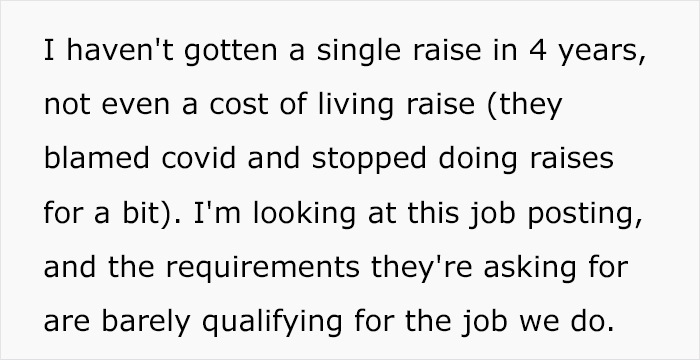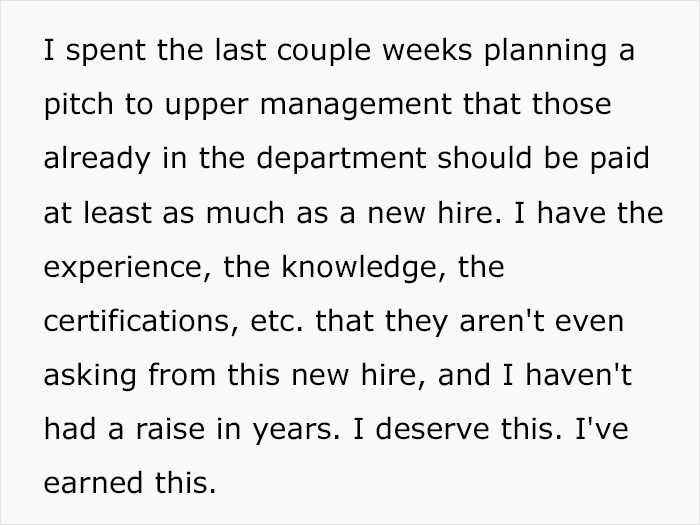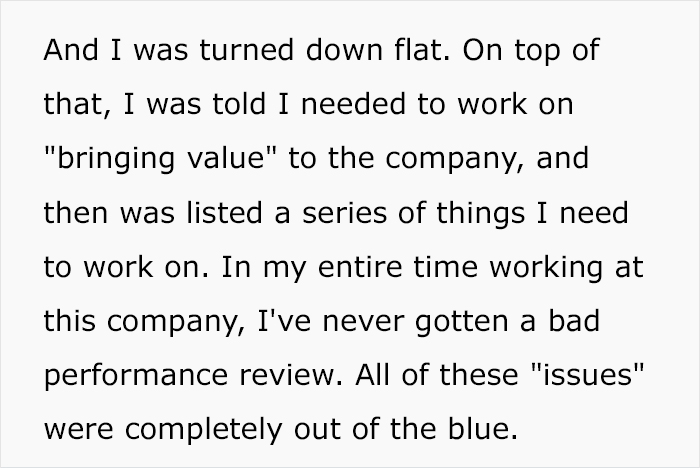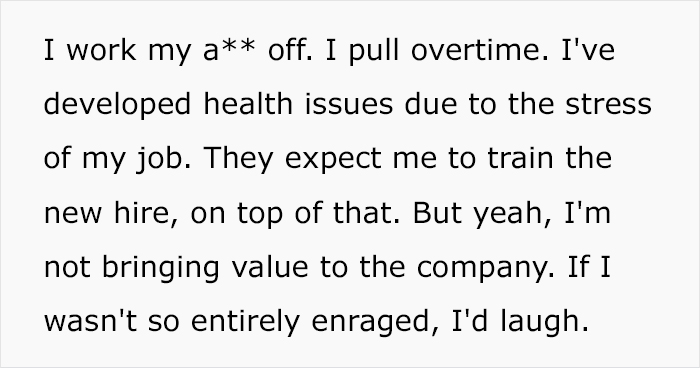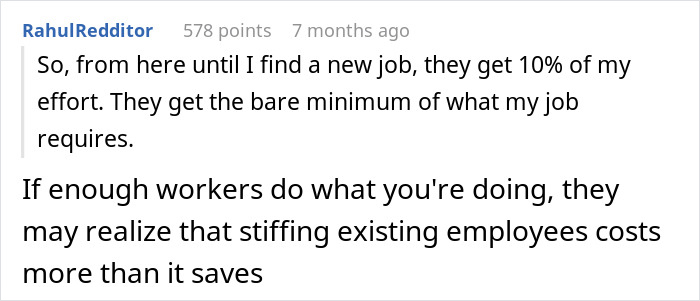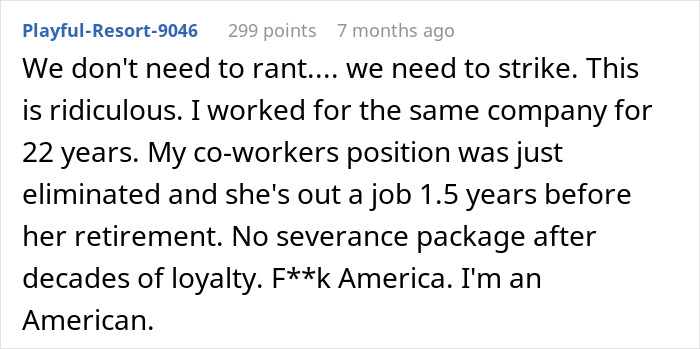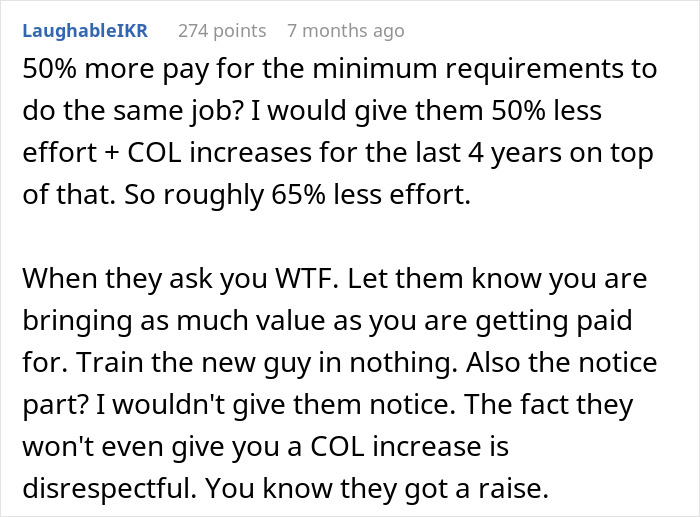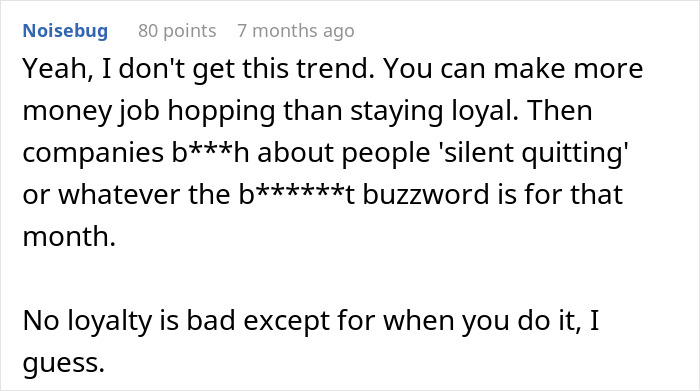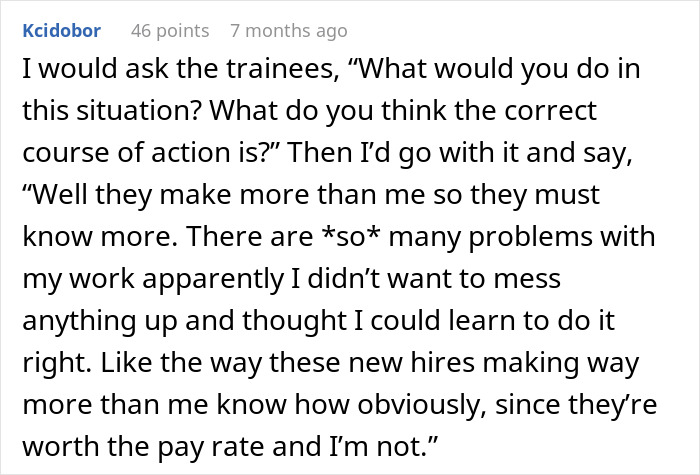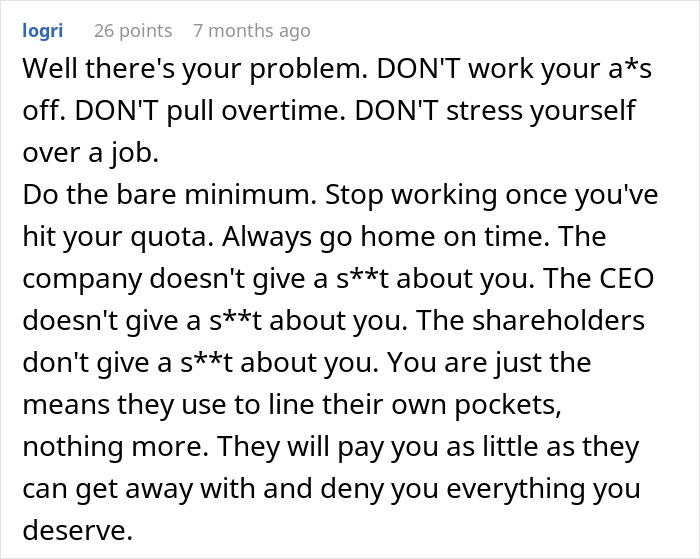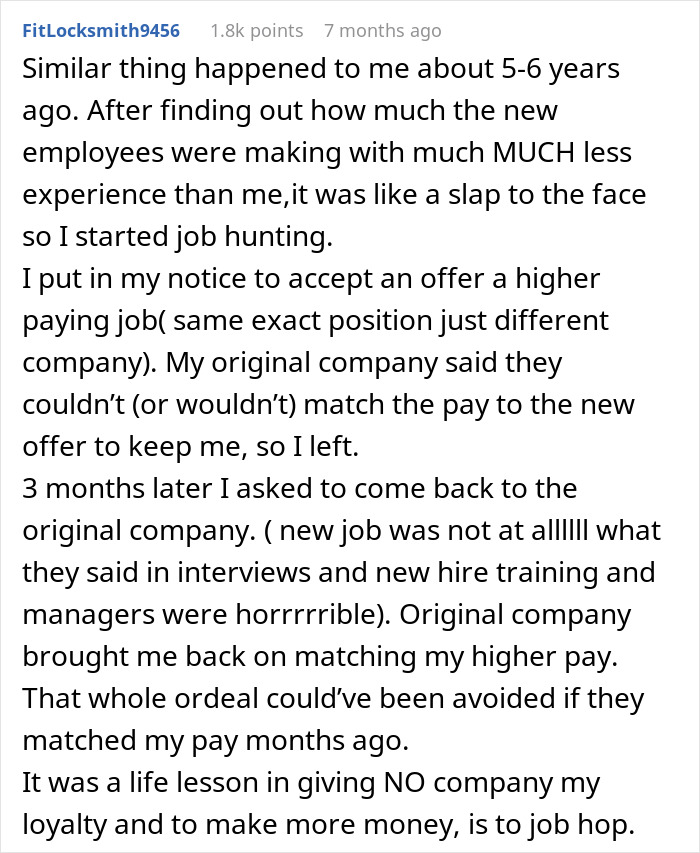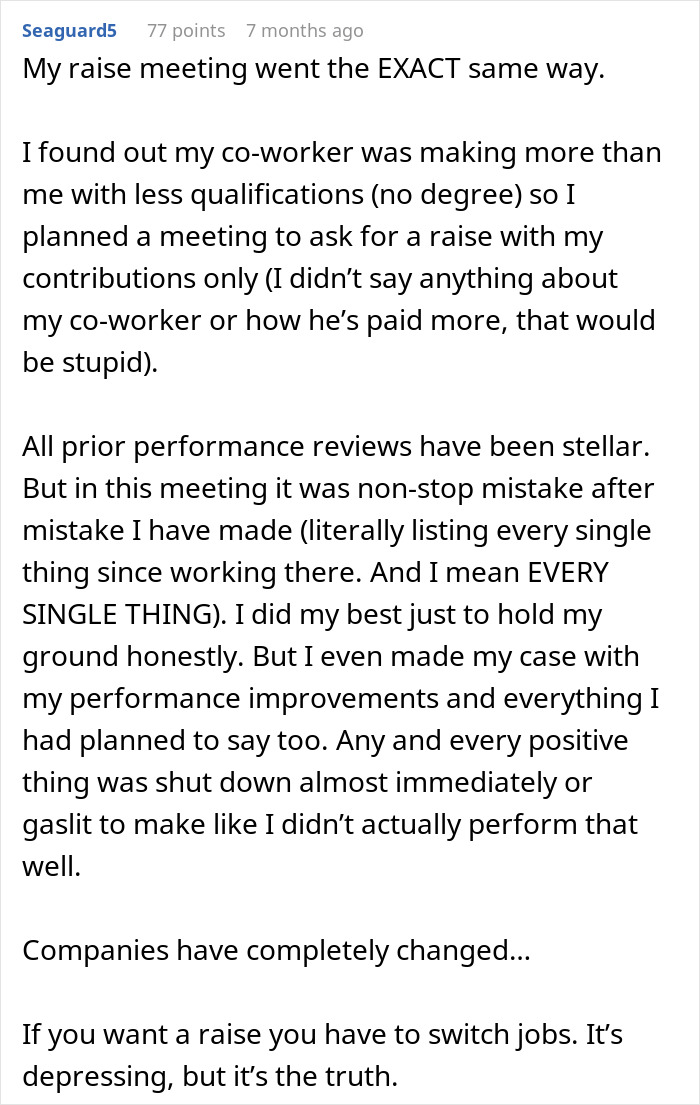Sure, there are a sizable chunk of businesses doing the right thing and treating their employees right. However, the battle for living wages, ethical treatment and no bullpies workplaces continues. The r/AntiWork subreddit alone is proof of that. One person took to the subreddit to vent about their frustration with the fact that newbies earn more than they do and they aren’t getting a raise any time soon. Seems more like never.
While there is progress, still not all companies see their employees as humans—more like assets, disposable and replaceable at the flick of a finger
Share icon Image credits: GaudiLab / envato (not the actual photo)
This one employee vented about how new hires apparently earn 50% more than they do, despite them having been there for ages and never getting a raise
Share icon Share icon Share icon Share icon Image credits: LightFieldStudios / envato (not the actual photo) Share icon Share icon Share icon Image credits: [deleted]
What is worse, not only have they not had a raise in 4 years (mostly pandemic talk), their raise request from months ago was denied as well
Share icon Image credits: denied / pexels (not the actual photo) One Redditor was frustrated with the fact that the newbies in the company apparently had 50% bigger salaries, all the while OP hasn’t gotten a single raise in 4 years—mostly due to the company using the COVID pandemic as an excuse. Well, it got worse. Once OP approached management about a raise, they were swiftly denied on account of not bringing value to the company, despite never having had any issues, negative reviews or the like. This ultimately led to OP deciding to quiet quit, i.e. give minimal effort and do the bare minimum. Folks in the comments were all in support of OP, saying that 4 years was at least 2 years overdue for a raise. One commenter even sheepishly suggested teaching the new hires that if they want a raise, they should do some job hopping. Even others pointed out just how common such tactics are, with human resources not being able to do anything about it.
It’s surprising to see that companies still opt for replacement rather than retention, despite the latter being better
Share icon Image credits: Tima Miroshnichenko / pexels (not the actual photo) Strategic Asset Manager Matt Wilkie elaborated on the importance of employee retention over replacement, listing 15 reasons why. Generally speaking, if a company invests itself and retains its employees, it should end up costing them less in the long run. And it’s not just the cost of recruiting, training and the like. There is a certain kind of domino effect that takes place if an employee is replaced—productivity, continuity and consistency are disrupted with onboarding and their lack of know-how, which would otherwise be available with experience in the company. With each new replacement, companies assume the risk of the newbie not fitting in, not being up to par or just not being as reliable as some of the veterans. In turn, the quality of service suffers, everyone grows frustrated, and there’s more resources wasted in the end than there would’ve been if the company had simply kept the old-timer on board. Even if it was at a higher salary. So, what are your thoughts on any of this? Why do you think some companies never learn and min-max their profits to extreme degrees? Share your takes and stories in the comment section below!
Redditors were having none of that corporate talk, showing support for the employee and suggesting sheepish solutions
Share icon
Some shared similar stories of ridiculous corporate inequality
Anyone can write on Bored Panda. Start writing! Follow Bored Panda on Google News! Follow us on Flipboard.com/@boredpanda!


